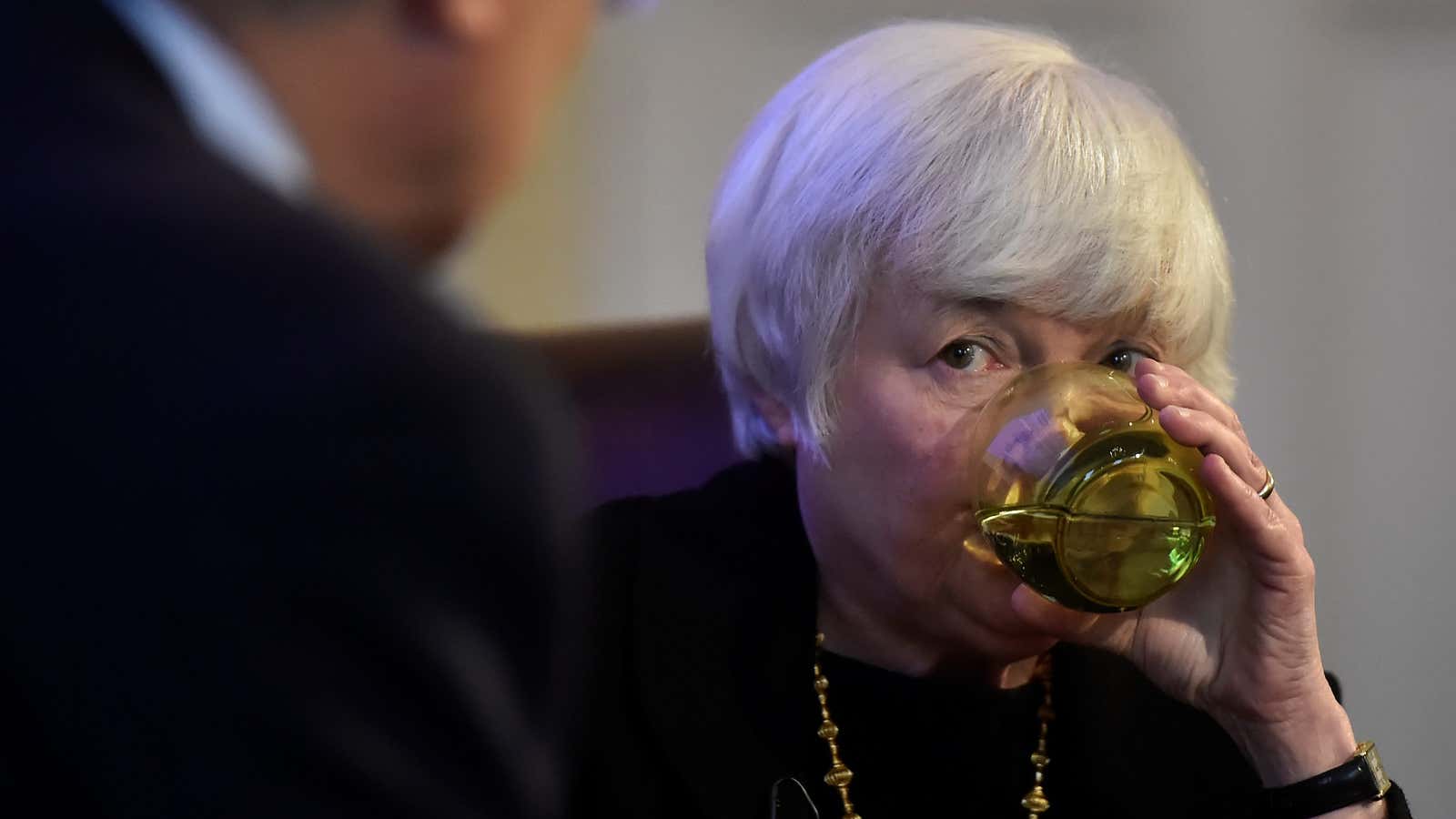When Janet Yellen speaks, markets move. Everything the US Federal Reserve chair says is closely monitored, of course, but traders were particularly surprised by her comments on inflation during the past two days of testimony to Congressional committees. In short, it doesn’t seem like she is convinced that inflation will rise high enough to make hiking interest rates an urgent priority (paywall). This suggests that rates may not rise as quickly as previously expected, boosting both stocks and bonds.
Yellen’s comments have made tomorrow’s release of monthly inflation data even more meaningful than before. If inflation continues to undershoot the Fed’s 2% target—so-called “core” inflation has drifted downward every month this year, from 2.3% in January to 1.7% in May—then more traders may revise their expectations for Fed actions in the future.
Arguably, however, the most important inflation numbers came out earlier this week. Some argue that China’s producer prices are just as important for the course of US inflation as anything else, given the countries’ close trading relationship. In her testimony, Yellen cited “transitory factors” keeping US inflation low, but also acknowledged “there could be more going on there.” It certainly looks like there may be something going on with Chinese inflation:
The US inflation rate has closely mirrored changes in China’s producer price index for many years. The US imports over $400 billion in goods from China every year, after all. Falling inflation in China in recent months, then, could keep a lid on US prices, too.
According to Michael Every, a researcher for Rabobank International in Hong Kong, the Fed won’t address this relationship directly. In an interview on Bloomberg TV, he said, “If [the Fed] were to do that, they’d have to basically admit that US inflation is a derivative of Chinese inflation, and therefore what they do with the rates, should be targeting China, rather than what they do at home.”
